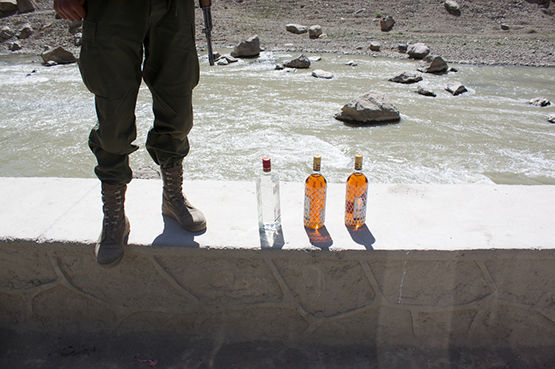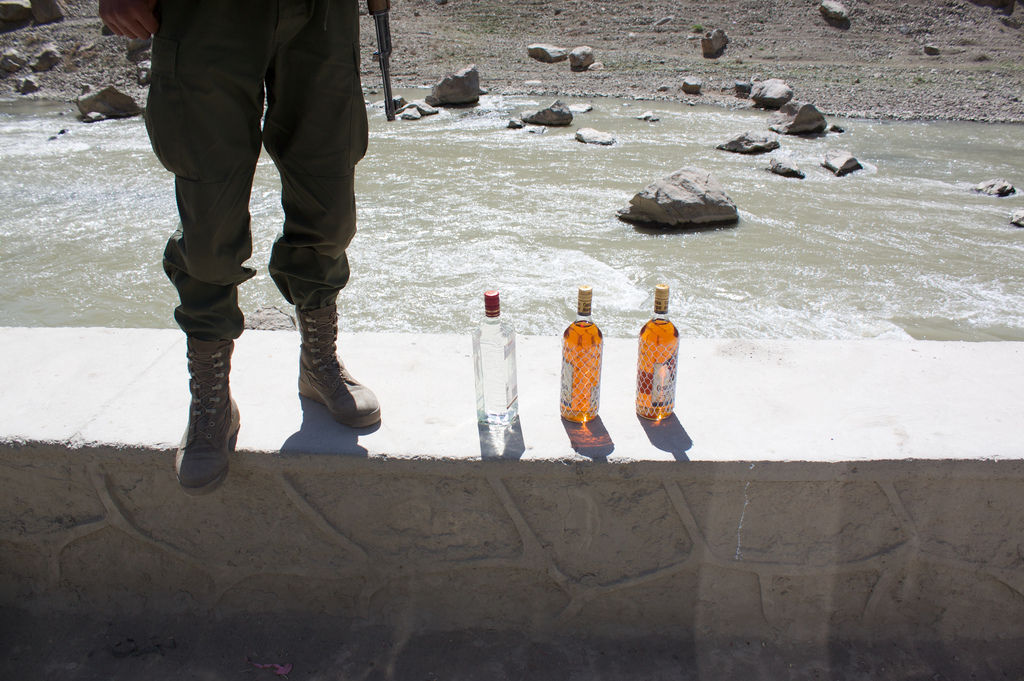By Dawn Lloyd
Editor’s Note: Dawn Lloyd is a guest columnist that spends most of the year in Kabul, Afghanistan. Throughout the term, she’ll be sharing her experiences living in Kabul with Ethos. Any opinions she expresses are solely hers and are not necessarily held by the editorial staff.
Her other entries can be found here: #1, #2, #3, #4, #5, #6, #7
Although I don’t drink myself, I’m often asked about alcohol use in Afghanistan. One might think that, as a “dry country,” alcohol in Afghanistan would be difficult to come by. The truth is that living in a dry country just means a person has to be a bit more careful in order to avoid having to pay bribes.
Alcohol can be purchased from behind the counter at a number of shops, particularly in certain areas of town like Flower Street which are known for selling it. In theory, the police would prevent such actions, but in reality, it just means the police get their share of the cut. One of my housemates once stopped at her usual black market shop to buy the weekly supply of beer for $5 a can. She walked into the shop and froze when she saw a police officer standing near the counter talking to the shop keeper. The shop keeper laughed at her reaction and waved it off, pulling the beer out from behind the counter and selling it to her in front of the police officer, assuring her that he was a friend and no one she needed to worry about. A few years later, however, the police began cracking down harder and the price of a can soared to as much as $12, with what would be a $20 bottle of vodka in the US selling for $100 here. The prices have dropped again, but still fluctuate over the months, largely based on whether the police are watching for alcohol sales in the interest of getting bribes.
The other primary sources of alcohol in the country are the restaurants frequented by expats. The availability of alcohol in these places is an open secret. One simply asks for it. There was a time when it was served openly, but after restaurants were fined a few times, they began serving the “special tea” out of teapots left on the table.
In order to reduce the likelihood of being caught, some of the restaurants and bars that specialize in alcohol don’t allow Afghans to enter. For security reasons, all restaurants are behind the same razor-wire topped walls and armed guards that encircle all businesses in Kabul. There are no signs or names posted for the restaurants. Patrons simply know where they are, knock on the gate, and wait for the guard to let them in. In the case of alcohol-heavy restaurants, Afghans are banned, and customers are “carded.” In this case, being carded means showing your passport as proof of foreign nationality. Even Afghan Americans, born and raised in the US or other western countries, are recognized by their name and not allowed to enter. These bans on Afghans have caused some problems on occasions when business lunches were arranged at one of these restaurants, and then the Afghan participant was turned away at the door. At times bribes are effective means of getting the door opened, but more often than not they aren’t unless the Afghan looks so clearly western as not to be recognized by ethnicity.
In the local “bars” where alcohol is particularly prevalent, paying for the alcohol can be a bit more complicated than in the US. Instead of simply paying for alcohol, the customer first buys what looks like a coupon book of “chits” in $50 denominations. These chits are then used to pay for the alcohol itself.
The final means of acquiring alcohol is to bring it yourself. The Kabul airport dutifully x-rays luggage before you leave the airport, and enforces the “reasonable for personal use limit” (usually 1-2 bottles) of alcohol brought into the country. However, they don’t pick up alcohol in boxes or other non-bottle containers, so that’s known as the most effective means of bringing alcohol into the country.
Overall, the state of Alcohol in Afghanistan varies considerably, with practices, prices, and means of hiding it changing often in an effort to stay off the radar of needing to bribe the police. It is seldom difficult to find or acquire, though.
About the author: Dawn Lloyd is an American who got bored and set out to find adventure. Four continents later, she’s settled in Kabul where she teaches English at the American University of Afghanistan. She is Editor in Chief for The Colored Lens magazine and writes speculative fiction, a list of which can be found on her personal site.
Categories:
Kabul Dispatch: Drinking in a Dry Land
March 25, 2013

Guards regularly confiscate alcohol at checkpoints. (Courtesy of Flickr
0








